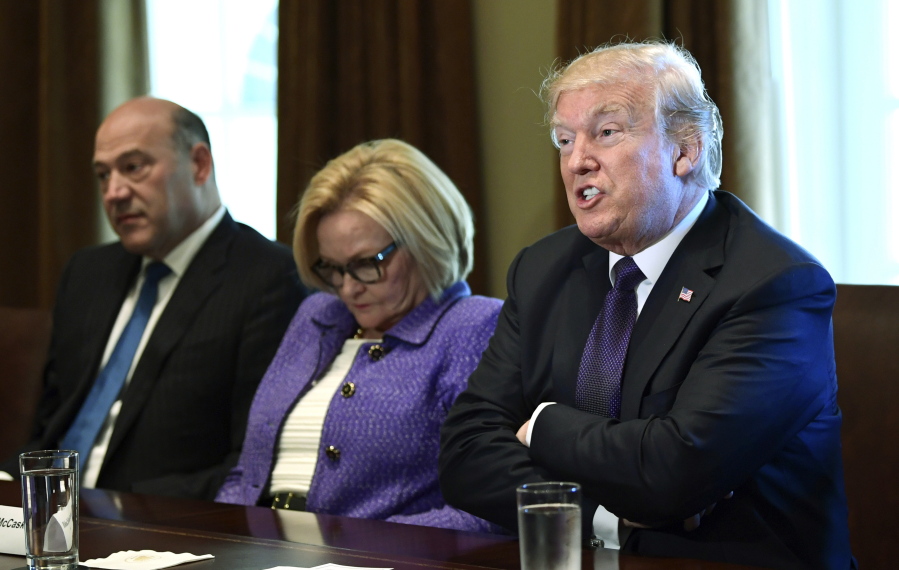WASHINGTON — Millions of Americans would lose a prized tax break under President Donald Trump’s sweeping revamp of the tax code, but corporations would get to keep it.
The GOP proposal would eliminate the federal deduction for state and local taxes, a widely popular break used by some 44 million Americans, especially in high-tax, Democratic-leaning states like New York, New Jersey, California and Illinois. But corporations, which pay billions in local property levies and state income taxes, wouldn’t be affected.
Republicans are determined to overhaul the nation’s tax system by year’s end, offering a plan that lowers the corporate tax rate from 36 percent to 20 percent and reduces the number of tax brackets. Trump and the GOP cast the plan as a boon to the middle class.
Meeting at the White House on Wednesday with members of the tax-writing Senate Finance Committee, Trump said, “this is a once-in-a-lifetime opportunity, in my opinion.”
Democratic members of the committee remained united in opposition to the current plan, said Sen. Ron Wyden of Oregon, the top Democrat. He said their message to the president was: “You fix it (the tax system) with real tax relief that helps the middle class. You don’t give tax cuts to people like him (Trump).”
Toward the end of the meeting, Trump issued a thinly veiled threat to Democratic senators, according to Sen. Sherrod Brown, D-Ohio. Most of the Democratic members of the tax-writing Senate Finance Committee who were invited are up for re-election next year in states Trump won in 2016. Brown is among them.
Brown said Trump told them, “I couldn’t imagine being a Democrat and running in 2018 having voted against” the GOP tax legislation.
The plan is still evolving, but the proposed repeal of the state and local deduction has divided Republicans.
Ending the deduction would affect individuals and companies unevenly.
If Amazon, now being frantically courted by dozens of cities, decided to locate its new second headquarters in Westchester County north of New York City, an affluent suburban area in one of the highest-tax states, the tech commerce behemoth still would be able to claim state and local taxes as a regular business expense, on par with items like buying machine parts.
But the company’s employees living in the area wouldn’t be so lucky: They’d take a financial hit from losing the ability to deduct their state and local taxes from their federal income calculations.
Trump and his Republican partners in the nearly $6 trillion tax overhaul plan push back against the idea that it would benefit mainly wealthy people and corporations. And they say the rest of the country shouldn’t have to subsidize wealthier states like California and New York whose residents use the state and local tax deduction in large numbers. Defenders of the state-local deduction, including several GOP House members, say repealing it would hurt low- to mid-income taxpayers, subject them to being taxed twice and enable a federal revenue grab on the backs of homeowners who pay property taxes.



